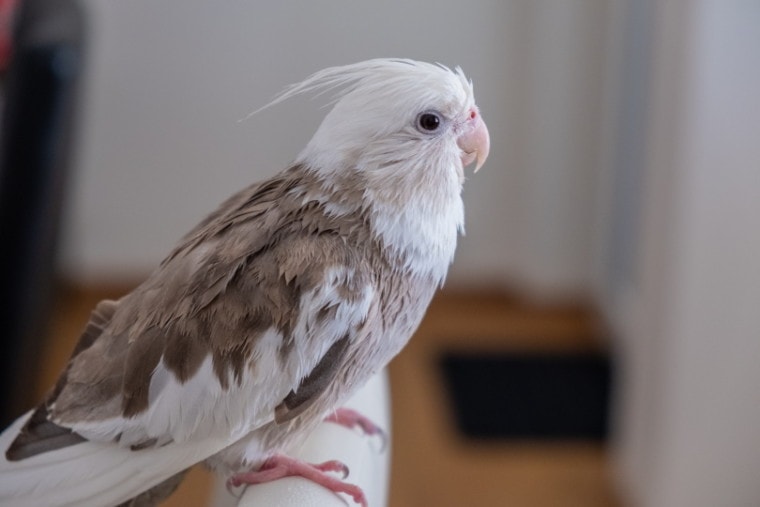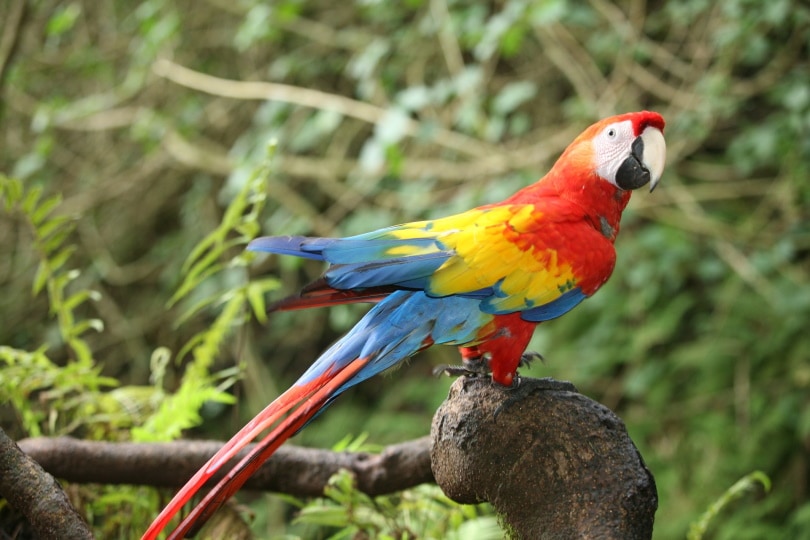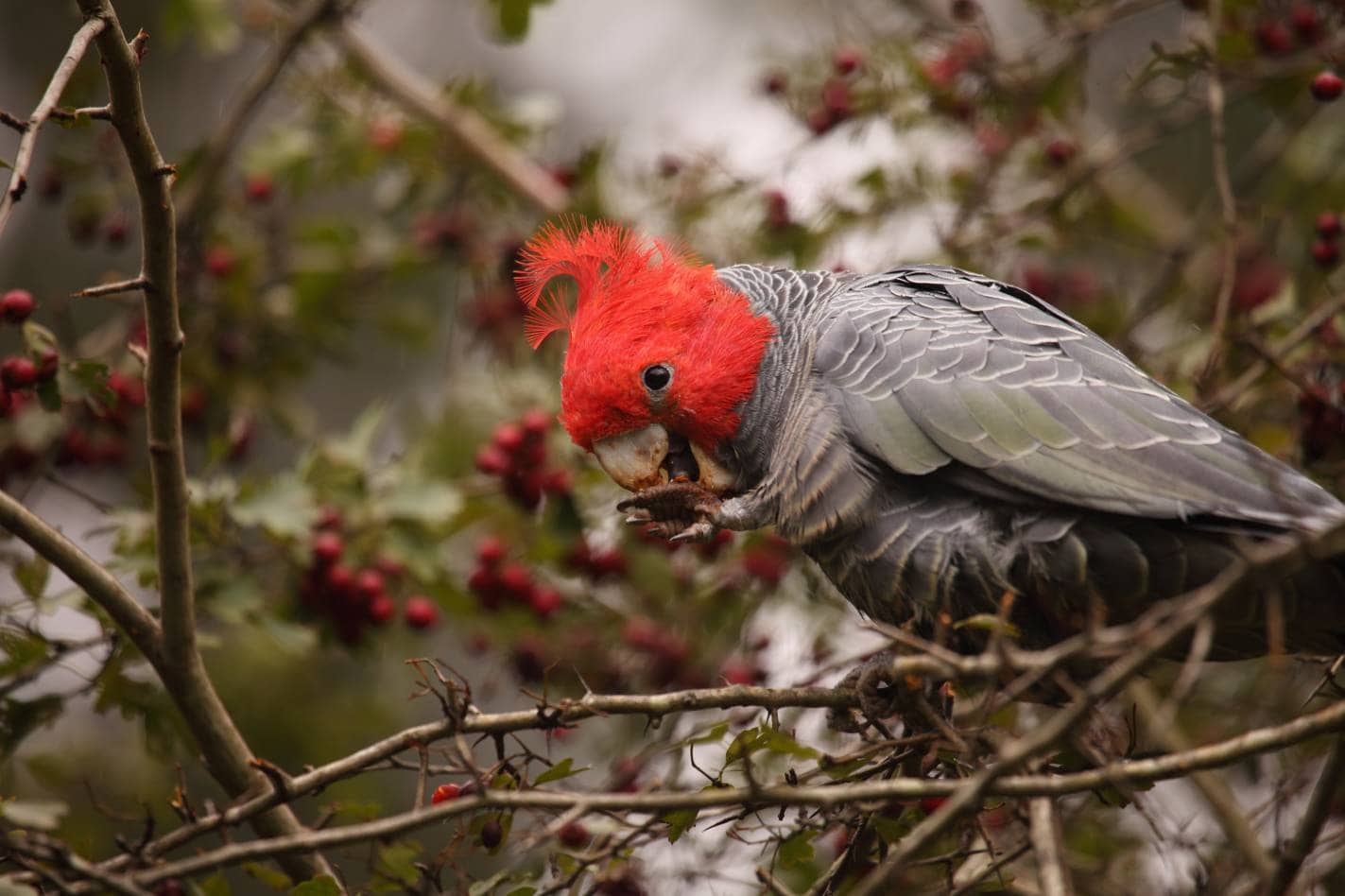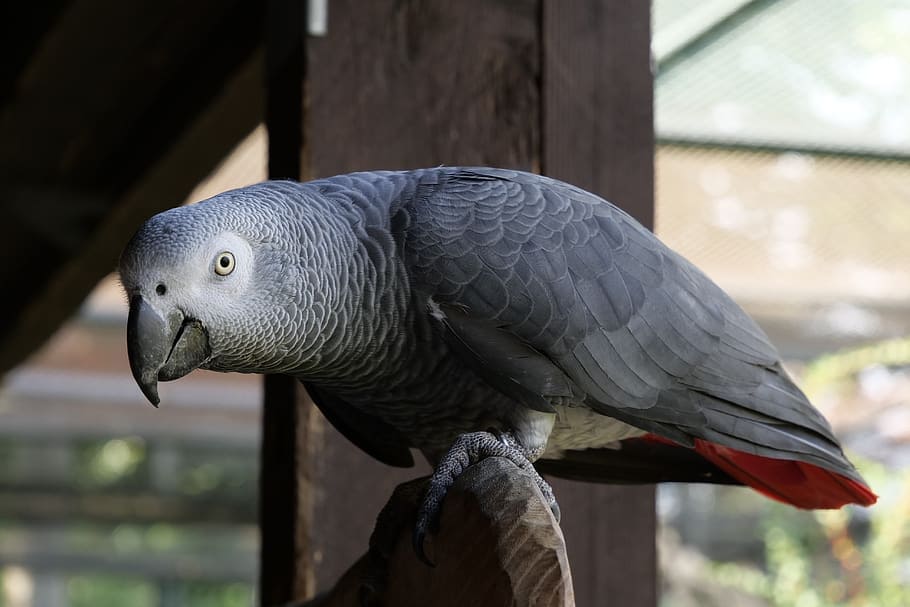
One of the saddest things bird owners can probably agree on is their lack of flight. After all, birds were placed on this earth to spread their wings and enjoy the sights from above. If you have any type of domesticated bird, you might wonder if cage life has to be forever.
Before we go through all the negatives, we want to say that some breeds can definitely be out of an enclosure during the day. However, your bird should always have a home and not be left without some necessary items.
Why Should Birds Live Without a Cage?
Imagine this—you’re equipped with gorgeous, functional wings to fly over the trees of the earth. Then, all of a sudden, you find yourself in captivity. You are shoved in a small enclosure that you look out of through wire bars. You don’t have any of your freedoms and spend a lot of time alone.
Does this sound like a fun life? Your bird doesn’t think so either. However, some birds absolutely must live in some type of enclosure if they are your pet because they have a higher tendency to fly away.
Choosing a species that you can allow to roam around at their leisure will only benefit them and strengthen your relationship together. But a cage should be a place of peace and solace, not restraint.

Free-ranging vs. Caged Bird Species
There are tons of different bird species spanning the earth. Many avian enthusiasts have different tastes about which birds work best in their homes. Even though this isn’t an exhaustive list of birds, you can get a general idea about whether a particular bird is compatible with cage-free living.
Many incompatible birds are small and flighty. These birds are hazards due to their size and tendencies. Small birds can get injured easily, and they can be challenging to catch (even with clipped wings).
Nighttime Enclosure for Free Birds
Many pet owners allow some larger birds, like parrots, to free-roam the home. However, even if you choose to do so, you should always have an enclosure for your birds at night when they go to sleep. All diurnal birds naturally seek refuge in the night hours.
But during the day, it is perfectly safe to have your birds out to perch as they please—permitting that you put the proper safety precautions in place.

Watch for Safety Hazards
When your bird is out and about, putting safety precautions in place is paramount. Birds can flail around, getting into all sorts of not-very-good things. But all it will take is a little proactive bird-proofing, and all should be fine.
Fans
Fans can be highly hazardous to pet birds. Birds are extremely fragile creatures, and even a fan on low can cause real damage! If they are tangled in any way, it can break their wings or even worse.
Open Doorways
An open doorway can be a very dangerous thing for domesticated birds. It only takes a couple of seconds for your bird to glide out. Make sure all members of the household know every time the bird is out of their enclosure.

Careless Entry and Exit
If members of your household are not paying attention, your bird could get caught in the door. This can cause an entire series of injuries, including broken legs, broken wings, and even something as gruesome as decapitation.
Open Windows
If you have proper screens in place, windows shouldn’t be a big issue. However, older houses with weaker screens or no screens at all can pose a flight risk if the window is left open.
Hot Stoves
If you are doing any type of cooking, make sure the stove is completely cool whenever your bird is in the room. Even slightly warm temperatures can harm their fragile claws.
Be Careful of Overexertion
Birds, especially smaller species, can panic when they fly. Because a home is so closed off with no open flight path, they can get frantic quickly. If they start fluttering around in a frenzy, they can quickly die of overexertion.
Always make sure any interaction is peaceful and calm to keep your bird feeling comfortable.

Alternate Options for Birds
If you are a creative person and you have the resources, we have a really fun alternative option for bird owners. If your bird is compatible with the weather in your area, you could build any size aviary so that they can freely fly around while still under protection.
Here are a few DIY aviary ideas for you, thanks to Pinterest. You can get as technical, fancy, or creative as you wish. There are both indoor and outdoor ideas available—as well as premade options. It might be worth a look for you.
Conclusion
Your birds can enjoy being a real part of the family once you make the switch to out-of-the-cage living. Even if this isn’t an option for you due to the species of bird you have, you can still make adjustments to provide a freer lifestyle.
Either way, aiming to give your bird a more natural life experience should be a priority. If you have the means, you can create a safe space for your bird to seek refuge—but no restrictions otherwise.
See Also:
- How Do Birds Communicate With Each Other?
- What Birds Can Macaws Live Together With in the Same Cage?
Featured Image Credit: Zdenka Kincel, Shutterstock








